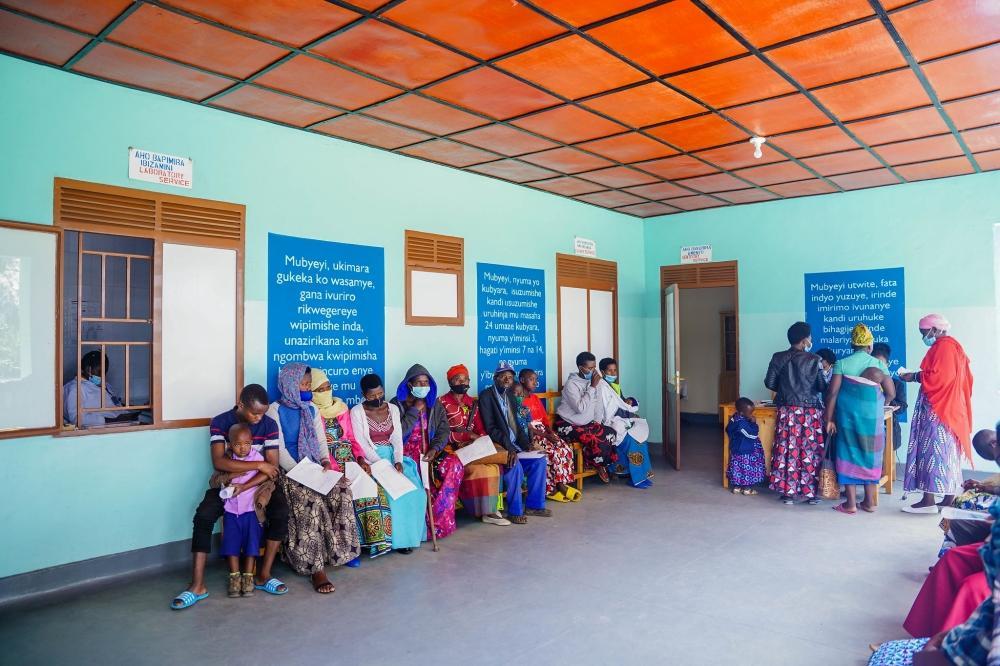Africa-Press – Rwanda. More than a decade after medical liability insurance was first introduced in law, a new healthcare services bill is once again pushing for its enforcement — this time with stronger provisions and clear obligations for both health professionals and institutions.
The bill, which parliament started deliberating on August 4, incorporates the 2013 law on medical professional liability insurance and the 2016 law on human reproductive health, in what the Ministry of Health said is an attempt to avoid having many scattered laws.
However, the implementation of the medical professional liability insurance law, which was meant to cover damages in case of medical harm caused to patients by healthcare providers, stalled due to the absence of implementing ministerial orders.
What the bill says
Under the proposed legislation, every healthcare professional is required to take out medical professional liability insurance from an insurer. Likewise, all healthcare facilities — public or private — must secure medical liability insurance coverage.
In situations where a healthcare professional is employed by multiple institutions, the bill stipulates that it is the professional’s responsibility to ensure each employer has contributed their share of the compulsory insurance premiums.
Compensation and coverage
The bill also clarifies responsibility in cases where healthcare risks are not covered under the insurance policy. In such instances, the employer is obligated to compensate for those risks. Where liability is shared between the employer and the insured professional, compensation is to be made proportionally.
It also provides coverage for patients harmed by pharmaceuticals or medical devices, but explicitly excludes malpractice claims related to sexual abuse and other criminal acts.
The prescription period for legal action arising from healthcare risks covered under the bill is set at five years from the date the harm occurred or was discovered.
Why the 2013 law stalled
MP Gallican Niyongana raised concerns about whether the new law will finally be implemented, given that similar efforts failed in the past due to a lack of enforcement mechanisms.
He pointed out that the 2013 law was never operationalised because ministerial orders, including one determining insurance contributions by institutions and professionals, were not issued.
That law also called for the creation of district and national Committees for Conciliation and Compensation for Health Risks, which also never materialised due to a lack of ministerial guidance on their structure and functioning.
In 2019, professional medical bodies expressed concern over the absence of such insurance, warning that individual professionals could face financial ruin — including having their property auctioned — in cases of medical harm if they had to pay damages out of pocket. They argued that insurance would offer necessary protection and peace of mind.
Push for implementation
MP Niyongana emphasised the need for government support to help professionals afford their insurance contributions and avoid turning it into a financial burden. He also pointed out that public health facilities would require budgetary allocations to comply with the insurance mandate.
He urged assurance that all necessary ministerial orders would be issued once the bill is enacted, ensuring the law is implementable from the start.
The Minister of State for Health, Dr. Yvan Butera, said the ministry is fine-tuning the medical liability insurance legal framework based on lessons from recent years, especially as Rwanda’s healthcare system expands and attracts more patients, including those from abroad.
“We are streamlining this law so that the expectations are clear on either side, be it on the provider, but also, on the receiver of services, so that it is well fine-tuned and ready to be rolled out,” he said.
MP Veneranda Uwamariya, Chairperson of the Parliamentary Committee on Social Affairs, said that during the bill’s review, government representatives confirmed that implementing the insurance scheme was feasible. She pledged that Parliament will follow up to ensure the law does not stall once again.
For More News And Analysis About Rwanda Follow Africa-Press






